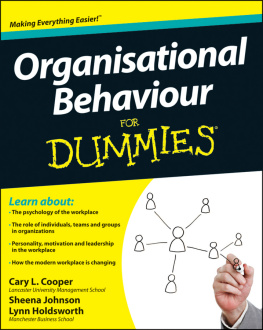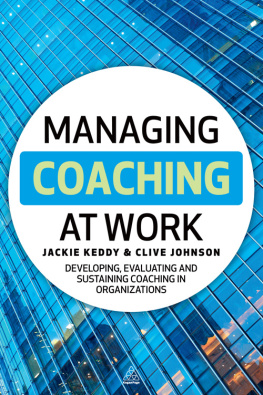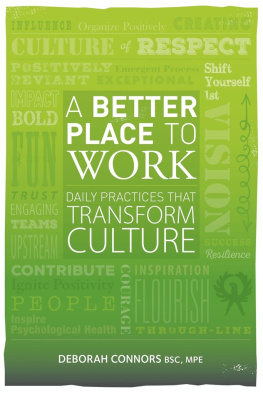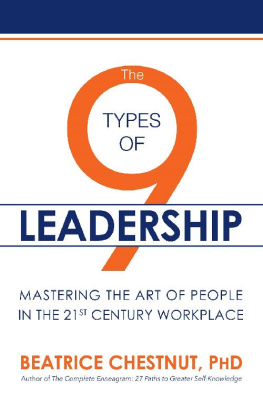Table of Contents
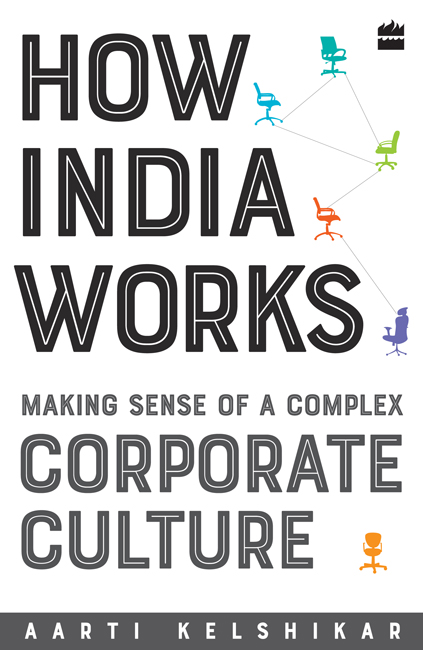
HOW INDIA WORKS
M AKING S ENSE OF A C OMPLEX
C ORPORATE C ULTURE
Aarti Kelshikar

For Anushka,
as she embarks on a whole new journey across cultures
Contents
F rom the sights and sounds to the tastes and textures, the experience of working and living in Incredible India can be both enthralling and mystifying.
But this can be the case, in varying degrees, in any unfamiliar or different place or culture. Let me share a personal anecdote. As a young couple, my wife and I were transported from Mumbai to the cold climes of North Yorkshire in the UK way back in the mid-1980s. You can imagine the culture shock; even the language supposedly English was spoken in a very strong Geordie accent, which we could barely decipher. I told my boss at ICI (Imperial Chemical Industries) that this was a hardship posting for me as I have to wash my own dishes, do the laundry and ironing, mow the lawns and hoover the house weekly. Talk of challenges of living in a developed country! We had to grow out of the habit of always having house help, whom we were so used to back home, and decided to do in Rome as the Romans do. Then onwards, we moved from surviving to thriving.
The experience above relates to the personal aspect of life in a different land. One of the biggest challenges when working with a set of different people or in a different country is the cultural variation. All cultures have their own norms, values, beliefs and practices, which are similar to none.
In my professional experience of working with a Swiss company for more than twenty years, I have seen first-hand the importance of having a strong cultural quotient. One of the earliest things I learnt was that while openness towards technology and innovation gave the Swiss an air of daring-do, one should not be misled. The Swiss by nature are conservative, empirical-minded and prefer to stick to rules. Fuzzy logic has no place in their thinking. Meetings cannot be held spontaneously. If you come to the meeting on time, you are late because you should have arrived a few minutes earlier so that the meeting could start on time. Well, this holds true for social occasions too. You can imagine the consternation of a colleague of mine when he arrived half an hour late for a dinner at a Swiss colleagues home and was told he would have to skip the drinks as the roast was ready in the microwave for serving! I am sure a large number of harried housewives in India would love to do the same but the spiritual quotient in them militates against this Swiss norm. Of course, one must not forget that the Swiss are very private people and it is taboo to ask any personal questions which we tend to do in India at the drop of a hat!
As the world gets better connected and as intercultural interactions increase, one finds that the challenges and complexities also increase. And when one is talking about a country like India, the complexities are manifold. India is not one country but many countries rolled into one. Whichever way you look at it, the prospect of living and working here and dealing with its unmatched diversity and contrasting character is complex at many levels. Like ebony and ivory on a piano, Indians (mostly) live together in harmony and even play a common melody together.
Given the vast numbers of Indians both in India and abroad and the attractiveness of the growing Indian economy, working with Indians is inevitable for many in business the world over. People have questions asked aloud and wondered privately about the what, how and why of Indian behaviours and mindsets. Here, yes may mean no and no may mean yes depending on the way one interprets the nod or shake of the head in response to ones questions! This is one of the many nuances that Aarti Kelshikar explores in How India Works: Making Sense of a Complex Corporate Culture.
Drawing on her experience of and exposure to intercultural understanding, she takes us on a journey that navigates the landscape of cultural complexities in India. Aarti has lucidly woven her views and experiences along with those of sixty professionals both Indians and expats who have lived and worked in India. It is a treat to read all their stories, unique in their own way, and to see their journeys through their eyes.
While expats stand to benefit from reading this book, it is particularly relevant for Indian readers. In his book Cultural DNA: The Psychology of Globalization, Gurnek Bains highlights how, as per research conducted, 34 per cent of Indians had a development need around self-awareness, the highest percentage of all global regions. An area that this is often manifested in is the manner in which Indians accept feedback (which is also discussed later in the book). How India Works provides an opportunity for Indians to be more cognizant of their behaviours, their strengths and their idiosyncrasies.
Everything in India happens in the richness and fullness of time, and as Sonny in the movie The Best Exotic Marigold Hotel tells a disappointed tourist, In India we have a saying: Everything will be all right in the end. So if its not all right, it is not yet the end. For those willing to immerse themselves in the paradox that is India and be patient to explore the layers of cultural complexity, the end will be a rich and rewarding journey both on the professional and personal fronts. How India Works can be a good guide on this journey; do savour and enjoy it!
Ranjit Shahani
Vice-Chairman and Managing Director,
Novartis India Ltd, 200218
June 2018
T his is a list of the people quoted in this book. The complete list of people interviewed is given under Acknowledgements. All of the following are/were based in India and their designations are as at the time of interviewing them.
- Amit Agarwal, Vice-President and Country Leader, Thermo Fisher Scientific
- Sateen Bailur, Senior Manager at a large foreign bank
- Gaurav Bhatiani, senior infrastructure professional with experience in policy, financing and strategy
- Martin Bienz, Consul General of Switzerland
- Josh Bishop, High School Principal, American School of Bombay
- Brendon Breen, Health Teacher and Technology Coach at an international school
- Peter Clark, Chief Operating Officer for a large foreign company
- Susanne Cox, Senior HR Manager at an Indian petrochemicals organization
- Sven De Wachter, Director of Wachter Oriental
- Nishith Desai, international lawyer and globalization expert
- Mary Kay Hoffman, international school educator
- Virginia Holmes, Director, Fat Mu
- Jos Hulsbosch, Chief Operations Officer, Union Kbc Asset Management
- Bernard Imhasly, former Swiss diplomat and foreign correspondent
- Craig Johnson, Head of School, American School of Bombay
- Justin, Manager from New Zealand
- Jaideep Kalgutkar, General Manager at a large IT company
- Madhav Kalyan, MD & CEO, JPMorgan Chase Bank N.A., India
- Chloe Kannan, international school teacher
- Rajan Khorana, former director at a large US-based financial institution
- Nick Kilstein, international school teacher
- Yuk Dong Kim, CEO, Shinhan Bank, India
- Joe King, Head, Audi, India
- Stans Kleijnen, Executive Director, Netherlands Foreign Investment Agency, India
- Eric Labartette, Managing Director, Metro One Operation
- Lorna, South African expat
- Shanti Mohan, Co-founder and CEO, LetsVenture




